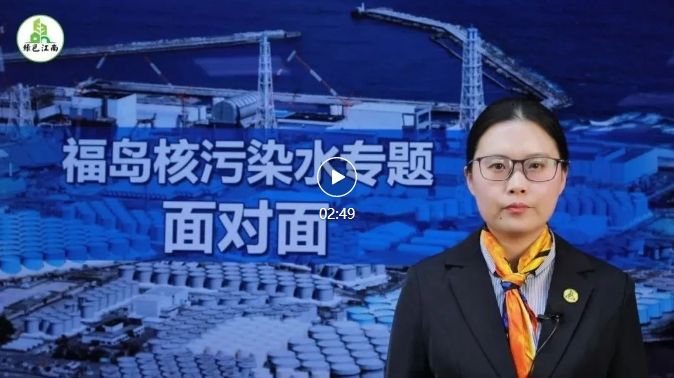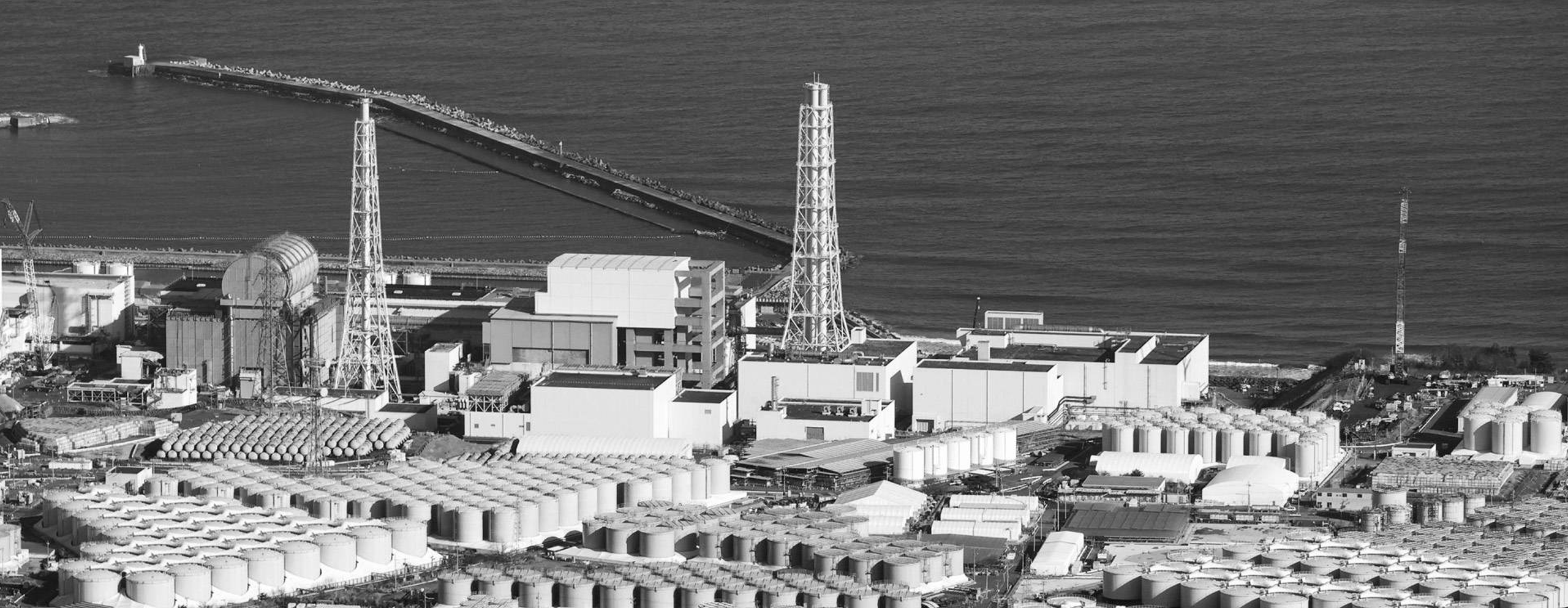
视频链接:https://mp.weixin.qq.com/s/KTOliHf_VAZeByWp9nqxqQ
福岛核污染水专题 面对面
2024年2月28日上午,日本东京电力控股株式会社(以下简称东京电力)罔顾国内民众和国际社会的关切与反对,擅自启动福岛核污染水第四轮排海。再次将核污染风险转嫁给全球,这是公然对国际法的践踏,是挑战全人类的生存环境底线。
东京电力从第四轮排海开始,将省略在排放入海前将核污染水暂时放入大型水槽并确认氚浓度的步骤,改为在排放过程中采集用海水稀释后的核污染水,每天进行一次浓度测定,以此来确认安全性。但就在2023年8月,东京电力曾承认,储罐中约有66%的核污染水放射性物质含量超标。东京电力省略排海前确认核污染水中放射性核素氚浓度的行为将对全球海洋生态环境造成难以想象的损害。
核物理学家阿尔文·温伯格曾表示核污染水排海是“可以用科学提问,但不能只用科学回答的问题”的“超科学”事例。也就是说,数据不能代表一切。鉴于东京电力过往频繁出现信息瞒报、篡改数据等恶劣行为,国际社会本就对福岛核污染水排海这一行为的“安全性”“可靠性”一直持反对声音。近期,福岛第一核电站又接连发生工作人员遭核污染水溅射、净化装置核污染水泄漏、火灾等事故,不仅充分暴露东京电力内部管理严重混乱、日本政府包庇、国际监督缺失,再次让东京电力一直强调的核污染水排海“安全”“可靠”的说辞沦为空谈,屡次引发国际社会的担忧和强烈反对,再次凸显建立利益攸关方的民间实质参与以及国际监测与监督福岛核污染水排海的重要性和必要性。
福岛核污染水排海事关全人类健康、全球海洋环境、国际公共利益,日本原子能专家、长崎大学核武器废弃研究中心教授铃木达治郎先生在2024年2月14日表示“日本政府应该先停止向大海排放核污水,并建立一个利益相关者可以信赖的‘独立监督机构’”。因此,作为长期关注福岛核污染水排海进展的邻国环保组织“绿色江南”,要求以“独立监督机构”国际联合观察员身份参与监督福岛核污染水排海设施管理、监测、信息公开的工作。日方应严肃对待国内外关切,本着负责任和开放的态度欢迎国际环保组织参与“独立监督机构”监督东电公司的核污染水排海行为。
To the Government of Japan: Immediately establish an "independent monitoring organization" to monitor the discharge of Fukushima nuclear contaminated water into the sea.
On the morning of February 28, 2024, Japan's Tokyo Electric Power Holding Co., Ltd. (hereinafter referred to as TEPCO), in defiance of the concerns and objections of the domestic public and the international community, unauthorizedly initiated the fourth round of discharge of Fukushima's nuclear contaminated water into the sea. Once again, the risk of nuclear contamination was transferred to the world, which is a blatant violation of international law and a challenge to the bottom line of the living environment of all mankind.
Starting with the fourth round of discharges, TEPCO will omit the step of temporarily placing nuclear contaminated water in large tanks and confirming tritium concentration before discharging it into the sea, and will instead collect nuclear contaminated water diluted with seawater during discharges and measure the concentration once a day in order to confirm safety. However, as recently as August 2023, TEPCO had admitted that about 66% of the nuclear contaminated water in the storage tanks contained excessive levels of radioactive substances. TEPCO's omission of confirming the concentration of the radionuclide tritium in the nuclear contaminated water before discharging it into the sea will cause unimaginable damage to the global marine ecosystem.
Nuclear physicist Alvin Weinberg has described the discharge of nuclear contaminated water into the sea as a "super-scientific" example of "a question that can be asked by science, but cannot be answered by science alone". In other words, data is not everything. In view of the frequent concealment of information and falsification of data by TEPCO in the past, the international community has been opposing the "safety" and "reliability" of the discharge of nuclear contaminated water from Fukushima. The recent spate of accidents at the Fukushima Daiichi nuclear power plant, such as the spilling of nuclear-contaminated water on staff, the leakage of nuclear contaminated water from the decontamination plant, and fires, have not only fully exposed the serious disorganization of TEPCO's internal management, the Japanese Government's cover-up, and the lack of international supervision, but have also once again rendered TEPCO's claim that the discharge of nuclear contaminated water into the sea was "safe" and "reliable", which TEPCO has all along been emphasizing, empty talk, and have repeatedly sparked the international community's concern and strong opposition, but also once again underscored the importance of and the need for the establishment of substantive participation by the civil society of the relevant stakeholders, as well as the importance of international monitoring and supervision of the discharge of nuclear contaminated water into the sea.
As the discharge of Fukushima nuclear contaminated water into the sea is a matter of concern for the health of all human beings, the global marine environment, and international public interest, Mr. Tatsujirou Suzuki, an atomic energy expert and professor at the Nuclear Weapons Abandonment Research Center of Nagasaki University, stated on 14 February 2024 that "the Japanese government should first stop the discharge of nuclear contaminated water into the sea, and should set up an `independent supervisory body' that can be relied upon by the stakeholders". Therefore, Lvse Jiangnan, an environmental organization from a neighbouring country that has long been concerned about the progress of the discharge of nuclear contaminated water from Fukushima, requests to participate in the supervision of the management, monitoring and disclosure of information of the Fukushima nuclear contaminated water discharge facility in the capacity of an international co-observer of the Independent Supervisory Body. The Japanese side should take the concerns of both domestic and foreign countries seriously and welcome, in a responsible and open manner, the participation of international environmental organizations in the Independent Oversight Body to oversee the discharge of nuclear contaminated water from TEPCO.
日本政府へ:福島原発汚染水の海洋排出の「独立監督機構」を早急に設置してください
2024年2月28日午前、日本東京電力ホールディングス株式会社(以下、東京電力という)は、国内世論と国際社会の懸念と反対を無視して、福島の核汚染水の第4回の排海を勝手にスタートさせ、再び核汚染リスクを世界に転嫁しました。これは公然と国際法を踏みにじること、全人類の生存環境の底辺に挑戦することです。
東京電力は4回目の海洋放出から、海に放出する前に核汚染水を大型水槽に一時的に入れてトリチウム濃度を確認する手順を省略し、放出中に海水で希釈した核汚染水を採取し、1日1回濃度測定を行うことで安全性を確認することに変更しました。しかし2023年8月、東京電力は貯蔵タンクのうち約66%の核汚染水の放射性物質含有量が基準を超えていることを認めました。東京電力は、汚染水中の放射性核酸トリチウム濃度を排海前に確認することを省略することは、世界の海洋生態環境に想像を絶する損害を与えるでしょう。
核物理学者アルビン・ワインバーグ氏は、核汚染水の海洋放出は「科学的に質問することはできるが、科学的にしか答えられない問題」の「超科学的」な事例だと述べました。つまり、データはすべてを表すことはできません。東京電力が過去に情報隠蔽やデータ改ざんなどの悪質な行為を頻発させてきたことを踏まえ、国際社会はもともと福島原発の汚染水海洋放出の安全性や信頼性に反対してきました。最近、福島第一原子力発電所では、作業員が核汚染水にスパッタリングされ、浄化設備からの汚染水漏れ、火災などの事故が相次いで発生し、東京電力の内部管理の深刻な混乱、日本政府の庇護、国際監督の欠如を十分に露呈しただけでなく、東京電力が一貫して強調してきた核汚染水の海洋排出の「安全」「確実」という言葉を空論に陥れ、国際社会の懸念と強い反対を何度も引き起こし、福島原発の汚染水排出に対する関係者の実質的な市民社会の参加と国際的な監視・監督の確立の重要性と必要性を改めて示しました。
福島原発の汚染水の海洋排出は、人類の健康や、地球規模の海洋環境、そして国際的な公益のすべてに関わっています。日本の原子力専門家で長崎大学核兵器廃絶研究センター教授の鈴木達治郎氏は2024年2月14日、「日本政府はまず、原子力排水の海洋排出を中止し、利害関係者が信頼できる『独立監督機構』を設立すべきだ」と述べました。
そのため、福島の核汚染水排出の進展に長期的懸念してきた環境団体「緑色江南」は、「独立監督機関」の国際共同オブザーバーとして、福島の核汚染水排出施設の管理、監視、情報公開の監督に参加することを要請します。日本側は国内外の関心に厳粛に対応し、責任と開放的な態度に基づいて国際環境保護組織が「独立監督機構」による東電会社の核汚染水排出行為の監督に参与することを歓迎するべきです。
内容来源:绿色江南微信公众号
